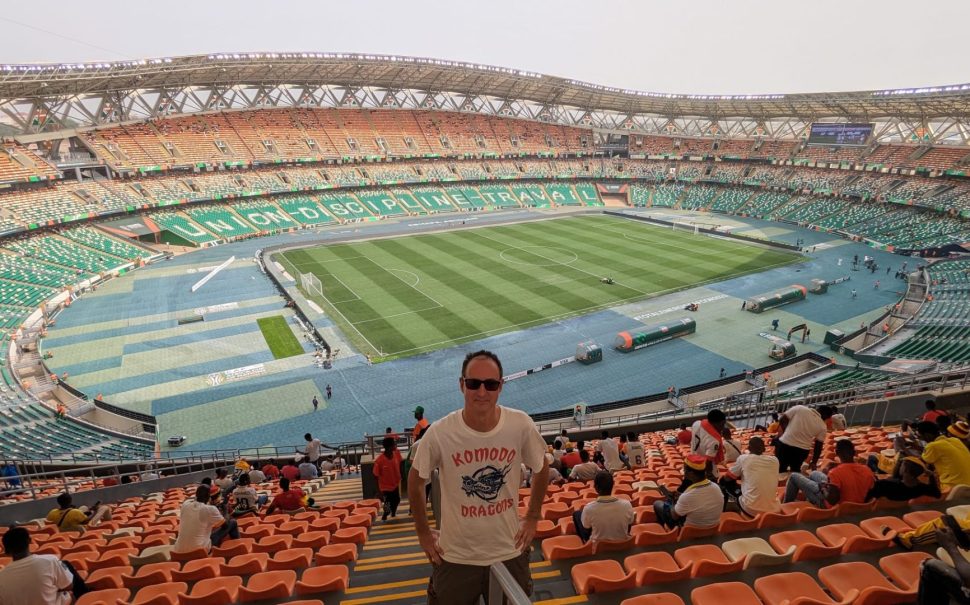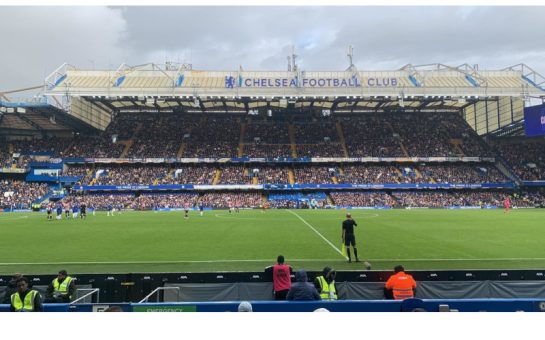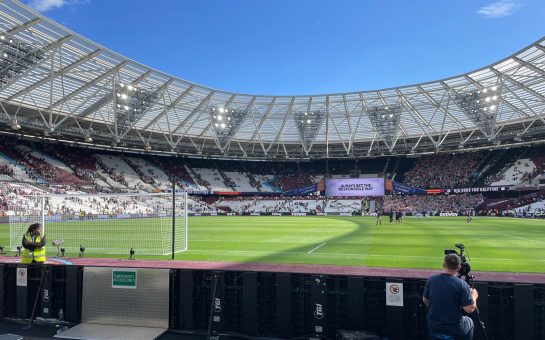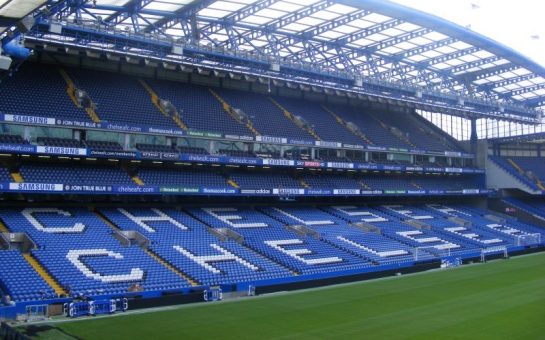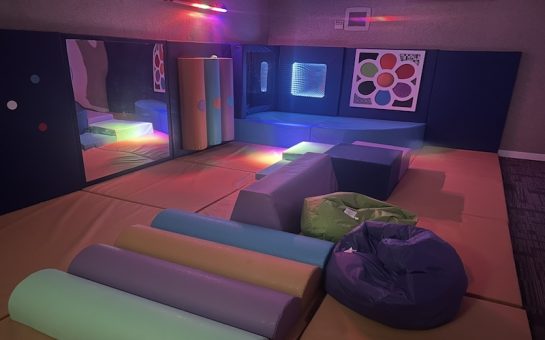As the final whistle blew to call time on DR Congo’s goalless draw with Tanzania, it ensured that the central African team would progress to the knockouts of the African Cup of Nations (AFCON 2023).
In the stands, the Congolese burst into a celebration, with Fulham fan Matt Walker being hugged and taking selfies with the fans.
But what made Walker stand out compared to other Brits was that, dressed in a DR Congo shirt, he was nicknamed White Congo by the fans.
The 0-0 draw was one of 13 matches that Walker and his two friends saw, all for the price of £88, across two weeks in the Ivory Coast, as they experienced a match in every stadium with various fanbases.
Before any of the football started, Walker had the exciting challenge of working out the logistics of attending his third AFCON.
Combining football and travelling isn’t out of his comfort zone, having previously written a book about his journey of attending a top-flight football match in all 55 UEFA Nations.
But this year’s footballing expedition threw up some issues, such as booking hotels or moving between five different cities.
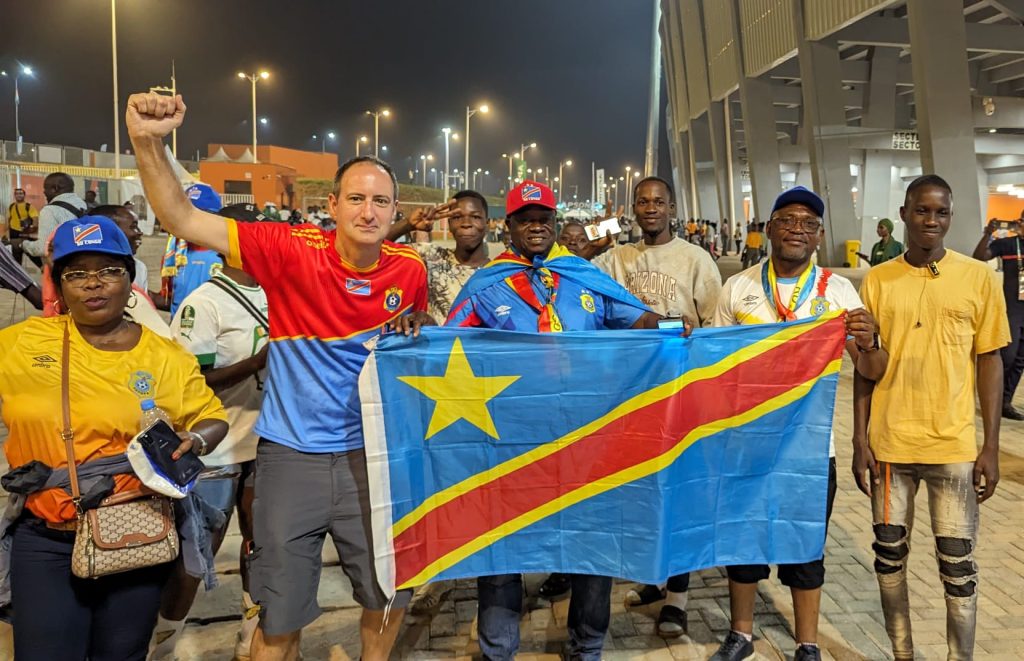
The football fan said: “I’ve never known a country with such little online presence outside the main city (Abidjan).
He said: “You go to the main booking sites, there was not a single hotel listed and that wasn’t because they were full, they just had no presence online.
“It proved to be quite difficult to book hotels outside of Abidjan and it required lots of emails and WhatsApp messages to Ivorian numbers in French.
“Eventually we got most of the hotel in advance but it took many hours, which is why lots of people probably stayed in Abidjan.
Walker explained that Ivory Coast isn’t a big tourist destination, so many small hotels were mainly for business people rather than tourists.
He said: “The issue was we wanted to see as many games as possible and in the end, we saw 13 games in all six stadiums.
“It meant we were getting in at 1 am and then getting up early to just get the next game.
The group eventually hired Mr Bamba, a driver from Abidjan, to help them through their tight schedule.
Walker said: “I sent him a message and he sent a voice note in French back which I had to put through Google Translate.
“He seemed pretty reliable from the voice messages but we didn’t know he was going to turn up because there was no deposit so he had no reason to turn up.
“I got a message on the day at five in the morning saying he had arrived, and he was a lovely guy.”
Bamba epitomised the friendliness that was on show during the competition.
It was the first time the Ivory Coast had hosted an AFCON since 1984, and the locals were sure to make the most of it, even if the football sometimes didn’t match the excitement on the streets.
Walker watched the Elephants’ opening game against Guinea Bissau in a west African restaurant in London called Sikatio.
It would prove to be the peak of the host’s group stage, as they followed the victory with a narrow defeat against Nigeria, and were then embarrassingly defeated 4-0 by Equatorial Guinea, putting their knockout hopes at risk.
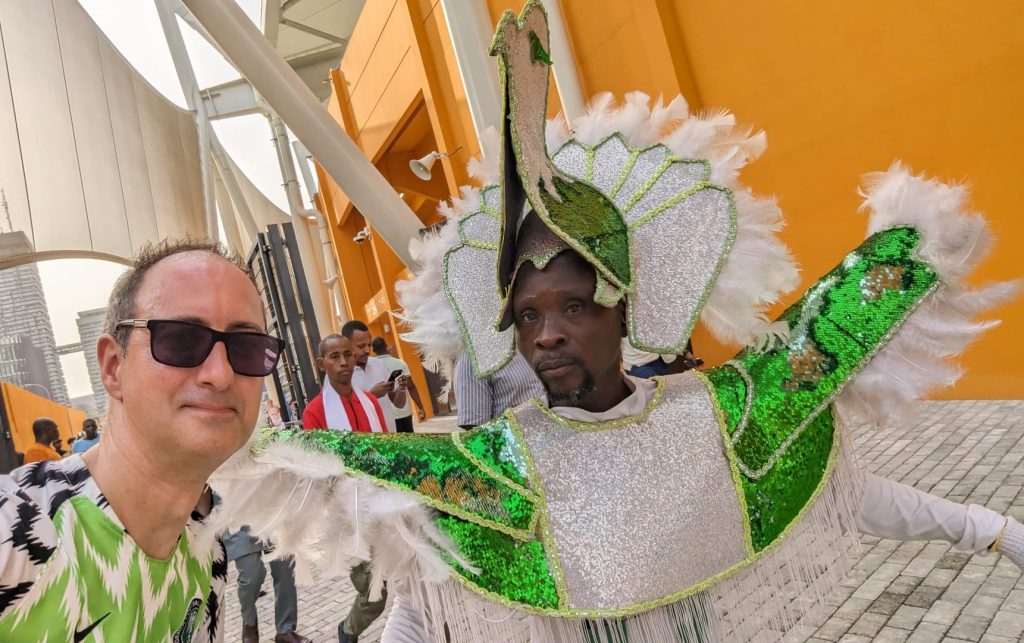
But even though they suffered one of the worst defeats in their history, the streets were full of joy.
Walker said: “I think it’s one of the biggest shocks in international footballing history because Equatorial Guinea are a mid-ranking African team and they absolutely destroyed them.
“They just fell apart and could have lost by more, but the strange thing about the game was that the next match in the stadium was Ghana vs Mozambique.”
Ivory Coast sacked coach Jean-Louis Gasset before their fate was even decided, and after Ghana let go of a two-goal lead in their match, new coach Emerse Fae would lead the team into the next stages.
Walker said: “When Mozambique equalised (to give Ivory Coast a better chance of qualification into the knockout rounds), everyone started celebrating, there were like 10,000 fans and it was like they won AFCON.
“I was getting a car back through the city later and there were people banging their fists on the car because Ghana had conceded.
“They almost forgot that it was the worst day in Ivorian footballing history.”
When not in the stadium, the three friends would often find a maquis, which is a typical place Ivorians would go to watch the game.
They would show the football, have a BBQ and a range of different people would all gather and watch football on one TV.
As a whole, the tournament was a great success for the country, with lifting the trophy a huge added bonus.
Walker said: “They put on a really good show in person, the stadiums were all pristine.
“Two of the stadiums had been upgraded, four were brand new.
“A few of the surrounding areas may not have been finished there were piles of red soil where there should have been a car park.
“There was a lot of work in the cities, with flags everywhere and the fan zones. When you arrived at the airport it gave you the atmosphere of being in a football tournament.
“The whole country was talking about nothing else, coming back here it was weird no one was wearing orange shirts down the street.
“It was like wearing jeans in the UK, everyone was wearing them.”
Walker’s journey in Ivory Coast came to an end with South Africa’s penalty shootout win against Cape Verde, but for the final, he would return to where his journey started. Sikatio.
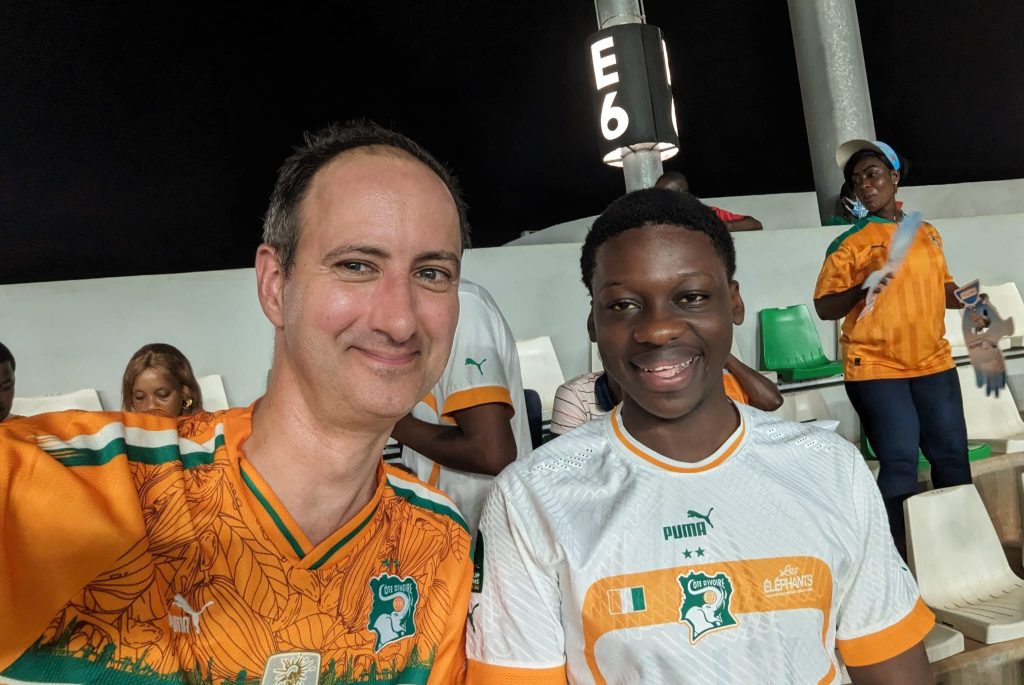
Ahead of the tournament, he had a bet for Nigeria to win, but the Super Eagles were the Ivorian’s final opponent and he was in a restaurant full of Ivorians, so felt it was only right to support the Ivory Coast.
After Sebastian Haller scored the winner, Ivory Coast were crowned as champions and the tucked-away restaurant in west London turned into a dance show, with everyone inside joyfully celebrating for 40 minutes.
Despite being on the other side of the world, the excitement felt the same, although the £6 Ivoran beers were a stark reminder of London compared to 80 pence beers on offer at the maquis.
In the end, Walker’s third AFCON was full of adventure, travelling across the country and experiencing panther dancers and hippo tours alongside a tournament that will live long in the memory of many African nations.
All images provided by Matt Walker
